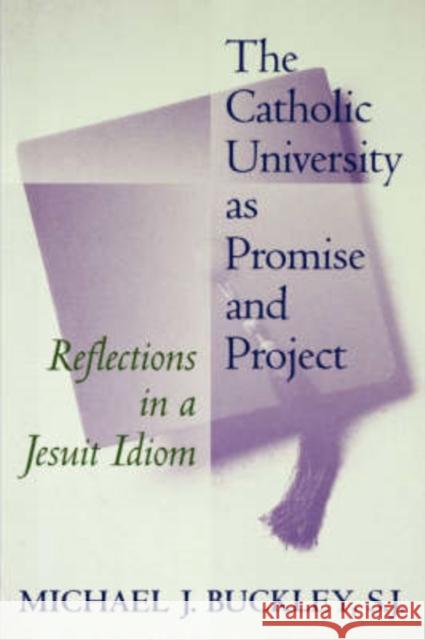The Catholic University as Promise and Project » książka
The Catholic University as Promise and Project
ISBN-13: 9780878407101 / Angielski / Miękka / 1999 / 252 str.
The development of the Catholic university in the United States has raised questions about its continued identity, promise, and academic constituents. Michael J. Buckley explains these issues, especially as they have been experienced in the history and contemporary commitments of Jesuit higher education. The fundamental proposition that grounds the Catholic university, Buckley argues, is that the academic and the religious are intrinsically related. Academic inquiry encourages a process of questioning that leads naturally to issues of ultimate significance, while the experience of faith moves toward the understanding of itself in relationship to every other dimension of human life. This mutual involvement of faith and culture defines the unique purposes of Catholic higher education. Buckley explores two commitments that inplicate contemporary Catholic universities in controversy: an insistence upon open, free discussion and academic pluralism--to the objections of some in the Church; and an education in the promotion of justice--to the objections of some in the academy. Finally, to foster the two classical architectonic disciplines, philosophy and theology, Buckly suggests both a "philosophical grammar" to examine the assumptions within every form of disciplined inquiry and a set of "theological arts" to strengthen contemporary theological inquiry.











